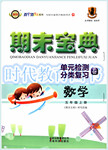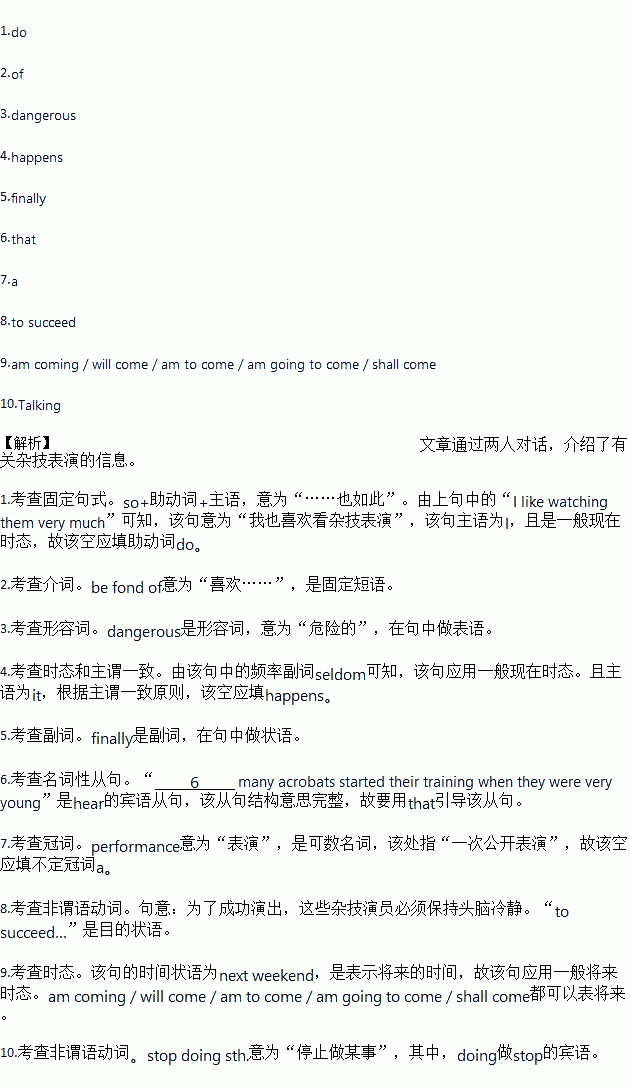题目内容
Billy: It's great to have the opportunity to see the Chinese acrobatics (杂技) performance. I like watching them very much.
Jennifer: So 1. I. Which act do you like the most?
Billy: I'm fond 2. the magic show.
Jennifer: Oh! It is beginning now. Is that tight-rope walking?
Billy: I think so.
Jennifer: I get nervous every time I watch this. It's so 3. (danger) and hard for him to balance. He may fall off and hurt himself.
Billy: Don't worry. It seldom 4. (happen). He has practiced a lot.
Jennifer: Oh, he's 5. (final) finished. I heard 6. many acrobats started their training when they were very young.
Billy: Yes. It takes many years of hard training before they can give 7. public performance.
Jennifer: Exactly. And the acrobats have to be cool-headed 8. (succeed) in their performance.
Billy: That's true. By the way, the clowns show is one of my favorites. I 9. (come) to see it next weekend. Would you like to come with me on that day?
Jennifer: I'd love to, Billy. Well, let's stop 10. (talk). There're many animals on the stage. Another show is about to begin.
Billy: OK. Look! The little dogs are so cute.
 期末宝典单元检测分类复习卷系列答案
期末宝典单元检测分类复习卷系列答案
